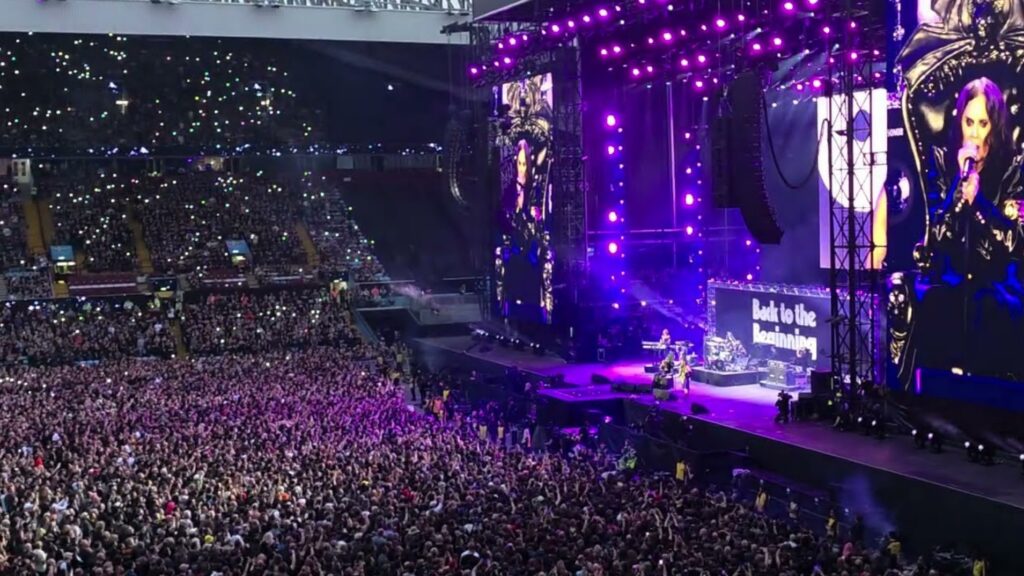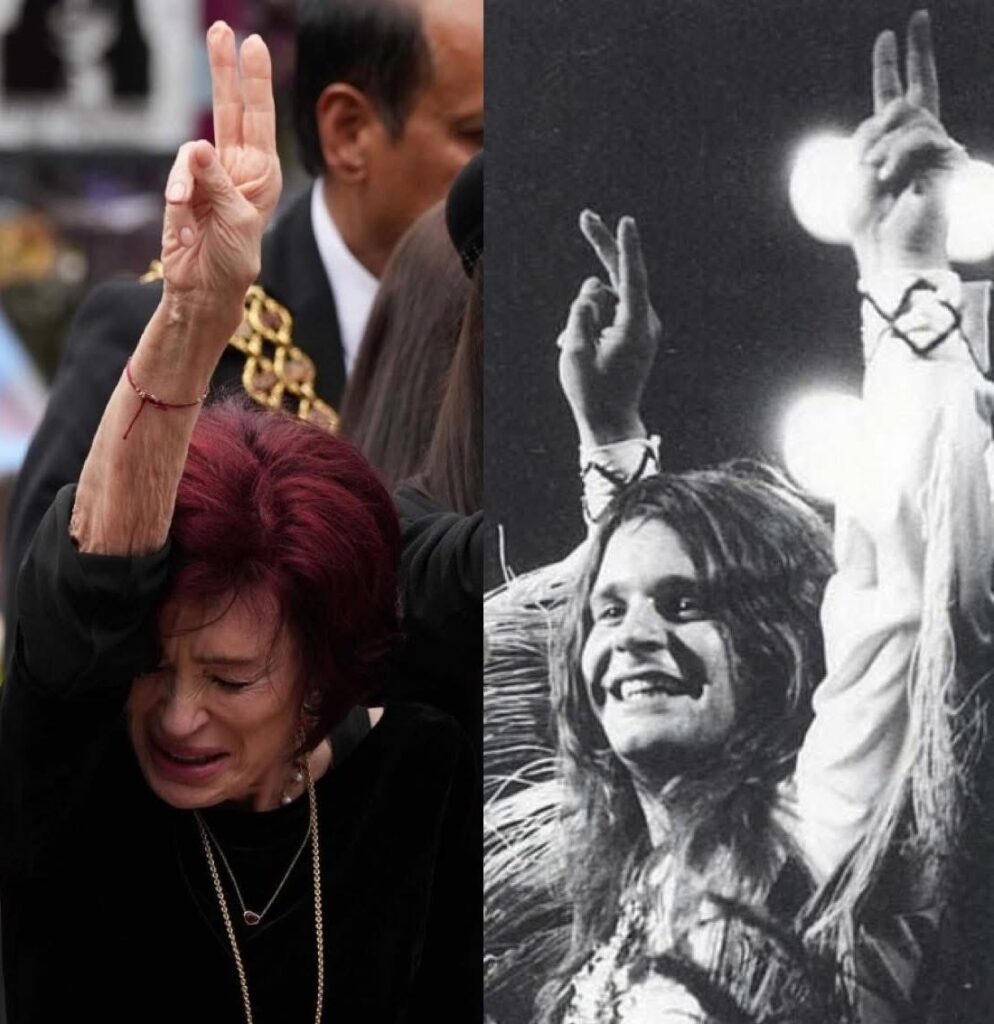The Night Everything Changed: Ozzy Osbourne’s Final Goodbye at Villa Park
On July 5, 2025, there was something in Birmingham’s air that could never be recaptured. The city where a young Ozzy Osbourne first dared to dream now stood ready to see him take the stage for the very last time—a homecoming steeped in gratitude, history, and an aching sense of finality. Villa Park filled not only with fans eager to hear the music, but with people determined to honor the man who had given his life to them—through chaos, triumph, and unimaginable fame. Every seat held decades of memories: nights spent shouting lyrics, heads banging in rhythm, hearts carried along by the wild, unpredictable magic only Ozzy could conjure.
From his first step onto the stage, it was clear this would be unlike any show before. Age and illness had slowed him, each movement deliberate, as if carved from pure willpower. But when that opening chord rang out, the years seemed to dissolve. No pyrotechnics. No gimmicks. No safety net. This was Ozzy in his purest form—raw, unfiltered, and unwilling to hide behind anything but his voice and his spirit.

The crowd knew they were witnessing history. Veterans of his earliest gigs stood shoulder-to-shoulder with younger fans who’d only dreamed of seeing him live. The music thundered, but the emotion hit harder—a silent agreement among thousands that they were here to close a story written over fifty years. Drawn by their love, Ozzy seemed to find more strength, his voice rising above the pain with a devotion only legends possess.
Then came “Mama, I’m Coming Home.” The stadium hushed, as though holding its breath. Everyone knew the weight of the song—once a love letter to Sharon, now a farewell to all who had believed in him. His voice cracked, his delivery unsteady, but every note was heavy with truth. No backing track, no lip-sync—just the sound of a man baring his soul one last time. People wept openly, embracing friends and strangers alike, whispering they would never see anything like this again.

Memories rushed back for everyone in the crowd: finding Black Sabbath in their parents’ vinyl stacks, sneaking into smoky clubs to see Ozzy live, blasting No More Tears on lonely nights. His music had been a lifeline through heartbreak, rebellion, and joy. That night, it felt as if the audience was singing those years back to him, returning every ounce of what he had given.
Ozzy had never been one to take shortcuts. He could have leaned on technology, masked the tremors in his hands or the cracks in his voice. But he didn’t. His fans deserved the truth—even if that truth showed his fragility. And in that vulnerability lay the performance’s power. Each imperfect note became a love letter, a reminder that authenticity leaves the deepest mark.
Between songs, he looked out into the mass of faces, visibly moved. “I love you,” he told them—not as a throwaway line, but as his final truth. Fans roared it back, their voices tangling with the warm summer air. Some had crossed oceans to be there, knowing they’d tell their children and grandchildren they had witnessed the Prince of Darkness’s last bow.
His bandmates played with quiet reverence, letting him set the pace. They watched him carefully, their respect obvious in every glance. The solos soared, the drums thundered, but nothing stole the focus from the man at center stage—fragile in body, unbreakable in spirit.
As the night neared its end, reality settled over the stadium: this truly was goodbye. The sadness was heavy, but so was the gratitude. For over half a century, Ozzy had given his heart, health, and soul to his music. Now the audience was giving it back, wave after wave.
Social media exploded with clips and tributes: “No playback, no lip-sync—just Ozzy being Ozzy. A legend to the very end.” The performance became a rallying cry for what live music should be—real, raw, and born of love.
From the side of the stage, Sharon watched through tears, knowing better than anyone what it had taken to get there. Their children stood together, overwhelmed by the sheer force of love pouring in from the crowd. It was a night of closure, of reckoning, and of celebrating a fire that had burned for more than five decades.
Even after the lights dimmed and the music faded, people lingered. Some wandered the aisles in a daze, trying to hold onto the feeling. Others hugged strangers as though they’d known them for years, bound by a moment too big for words.
In the days after, tributes came from every corner of the world. Musicians called Ozzy the gold standard for honesty and courage. Birmingham mourned a son, but also celebrated a gift he had given back to his city—and to the world.
Ozzy’s final show wasn’t perfect, and that was its beauty. It was human. It was heartfelt. It was the truest reflection of the man himself: a performer who had given everything, not for perfection, but for connection.
That night at Villa Park was more than a concert—it was a goodbye, a thank you, and proof that real music, made for love instead of ego, can outlive us all. As fans finally drifted into the night, they carried a piece of him with them, knowing they’d just witnessed the kind of farewell only a true artist can give.

